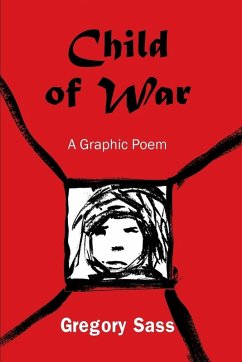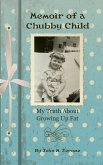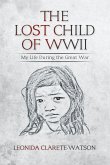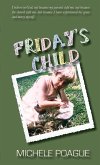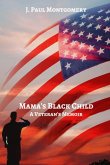In this profoundly moving and yet devastating poetic memoir, 'Child of War', complete with his own affecting drawings, Gregory Sass takes us into his world as a child of war. His stark and unsparing prose poetry pares down to the very heart of loss - how much we long for human love and connection and how unfinished we feel without those emotional pillars. In broad strokes, Sass takes us from the beginnings of the gathering darkness of a world at war, to his childhood memories of living through, and trying to make sense of, the devastation to family, friends and neighbours, and most of all, to a small boy forced to cope with what was happening around him: "I am your grief/and you become mine." And yet, at the same time, there is also the little boy who, in rare and all too brief moments tries to take in the wonders of this world and has a hidden desire to perhaps escape with them: "I lie down in the grass/and look up at the wispy clouds/and wonder where they're going." From a wish that his absent, unattainable father would have held him more, to the reality of trying to make sense of the dangerous chaos around him, the young boy comes up with the notion that in order to survive, he needs to keep his traumatised mother alive and this world consumes his identity. How does a child achieve an impossible task without giving up childhood and their very selfhood? And where is the help and support that can allow them to subsequently live a life unchained from those self-imposed burdens and nightmares? This story, told in the sparest of styles, underlines that wars are never over when the fighting stops. They live on in one way or another in the survivors and in their children and even elbow their way unto generations beyond. My daughter, born 35 years after the end of WWII, went out one day without telling anyone, and got an outline of forget-me-nots tattooed from should blade to hip along with the words, I will never forget, in Polish. She was barely twenty years old. I wondered how I could have been so unaware about the effects of my mother's experiences on my daughter as passed down through me. We are personally taken by stealth when trauma is transmitted like some invisible miasma over which we have no control. Gregory Sass was seven years old when the war ostensibly ended. His story didn't end there. He is both a child of a survivor and a survivor himself. Even his grandmother, whom he, "loved ... as one who is starved for love," abandoned him to suicide. It was as if, his love, his suffering, weren't important enough to merit love and protection from those around him. Trauma begets trauma. And in the end, during the post-war lost years when survivors were appearing silent and unsmiling, as if they couldn't bring themselves to speak of horror and terror, the world wanted to look away, couldn't face what humans can do to each other. For at least thirty years after the Second World War, mental health professions ignored, or appeared to be in denial, about the effects of trauma on survivors and their children. It is as if from the beginning of our habitation on this earth, we have embraced a legacy of war. Peace seems alien to our species. But what is the alternative? And when, if ever, will we embrace another way to live? As we appear to forget the past, told so poignantly in survivor memoirs, these questions need to be repeated and repeated.
Bitte wählen Sie Ihr Anliegen aus.
Rechnungen
Retourenschein anfordern
Bestellstatus
Storno

